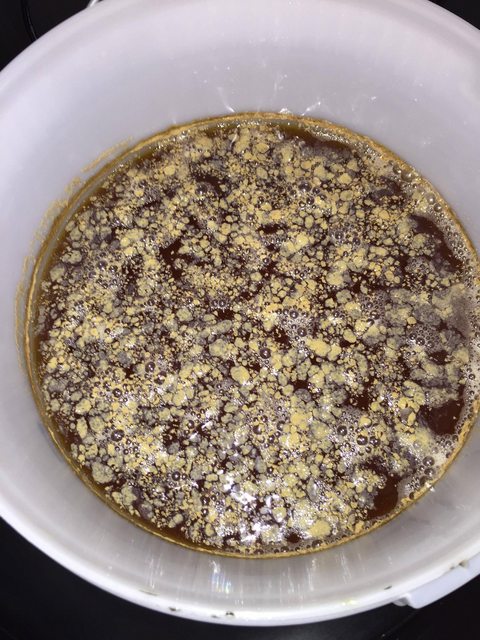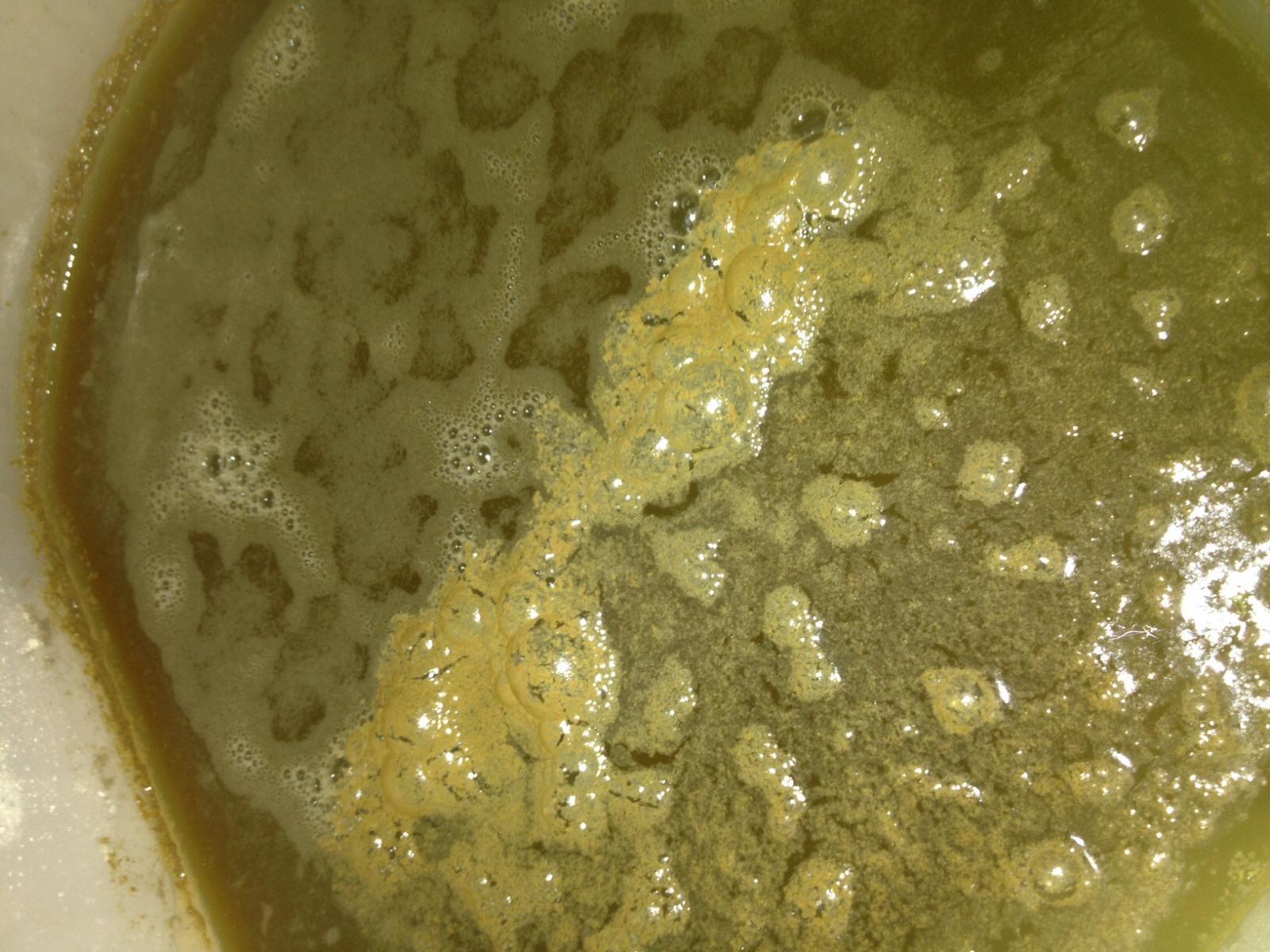BGBC
Well-Known Member
Looks fine

Wanted to get expert opinions on this one. This is my first 5 gallon batch, I've done three 1 gallons in the past without infection. Just opened after a week to dry hop, took a quick pic and closed the bucket. Is this an infection or just krausen still floating around?View attachment 277321
so, first IPA I've ever done. First time using honey malt. Vigorously sanitized and washed everything. What's that white speck (and some others) floating in there? Just scrape it out?
It definitely looks to have picked up an infection. You might be right about the brett.FView attachment 277904
Like an idiot, I fermented my (what was supposed to be clean) saison in the same area as my 100% Brett L and my batch with 100% Crooked Stave Vieille dregs. Do you think by this pic it has Brett, or all the bugs?
View attachment 277915 so, first IPA I've ever done. First time using honey malt. Vigorously sanitized and washed everything. What's that white speck (and some others) floating in there? Just scrape it out?
FView attachment 277904
Like an idiot, I fermented my (what was supposed to be clean) saison in the same area as my 100% Brett L and my batch with 100% Crooked Stave Vieille dregs. Do you think by this pic it has Brett, or all the bugs?
 Nastarovie!
Nastarovie!
To my eye that just looks like "yeast rafts" and residual co2. Green beer can certainly be a bit tart, so I wouldn't let that worry you either. How long has it been fermenting?
Totally, RDWHAHB (but it sounds like you're doing that)! The dry hop additions will certainly make a difference, as will carbonating and conditioning. Although you have some residual co2 on top, I bet that fermentation is done. The co2 can come out of solution and make the airlock bubble once in a while, it doesn't necessarily mean that it's still fermenting. The only way to be sure is to do hydrometer checks, but I would bet you're ready to start dry hopping.

I'm not sure if this is an infection? I'm a bit of a noob. Today is the third day of primary infection.
Coppers apa kit
Asda bottled water
200g crystal malt in boiling water and steeped for 30 mins
25g EKG pellets boiled for 15 mins
I thought I was quite thorough with cleaning and sterilization. Everything was sanitized - including all pots and utensils.
BUT
The bottles were stored outside prior to use.
Whilst pouring the bottled water in, a small snail which had been attached to one of the bottles fell off and into the fermenter. After using a cleaned, sanitized sieve , In less than a minute, I managed to retrieve the snail. Perhaps this could be the cause of any infection?
Thanks in advance.
Boiling water with grains is not a good idea. The water should be no hotter than about 160F for steeping, 155F for mashing generally. Did you clean & sanitize the bottles before filling? That could potentially do more damage than a small snail.
It's a kit brew, so I started with 4 litres of boiling water and the coopers APA kit, beer enhancer etc. the snail fell in during the addition of the bottled water to bring the mix up to 23 litres.
Yeah, but that's a small amount added back to the main mash. You wouldn't want to denature all the enzymes. Then you wouldn't get conversion. Seems to me decoctions were done before they came up with all the different malts we have today?
Enter your email address to join: